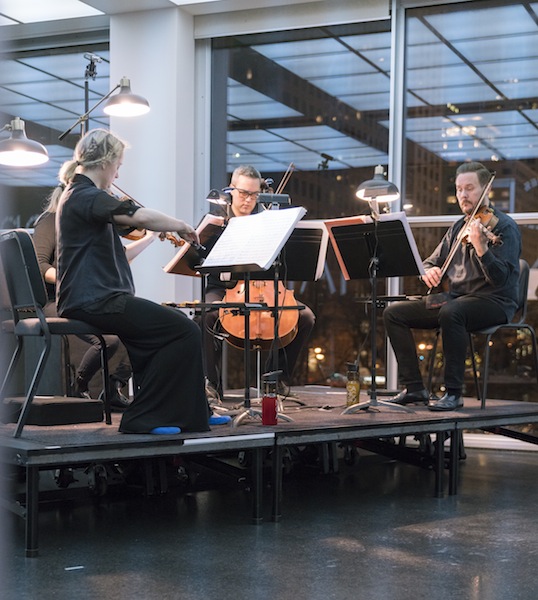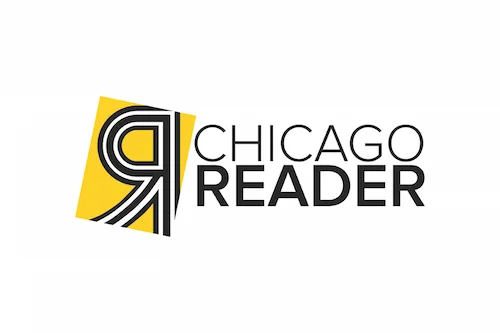"Chicago’s Spektral Quartet continues to explode the stereotype of how a classical string quartet should behave.
Violinists Clara Lyon and Maeve Feinberg, violist Doyle Armbrust and cellist Russell Rolen make it their mission to break free of constraints so that they might pull in new and more diverse listeners to the music they love.
Even for a polished chamber group that’s known for its boldly creative ways, 2017 was a watershed, and its singular achievements made the Spektral our choice as outstanding classical ensemble of the year.
No other local group made new and unfamiliar music so compelling an aural adventure. And not just new music: The Spektral brought as much finely calibrated vitality to Haydn as it did to Elliott Carter.
Its biggest coup of the year was a performance of Morton Feldman’s visionary five-hour String Quartet No. 2 (1983), in March at the Museum of Contemporary Art. Spektral’s acute concentration stopped time in its tracks.
October marked the launch of another cutting-edge Spektral venture, a season-long cycle of the four demanding string quartets of Arnold Schoenberg.
The real game-changer, however, was the quartet’s launch of three new concert series bringing fresh formats to unusual venues across the city.
The Dovetail series aims to foster cultural exchanges on the South Side, just as Once More, With Feeling tucks a composer conversation between performances of that composer’s music.
Then there’s Close Encounters, a series that includes everything from a concert with cocktails in a private Frank Lloyd Wright home, to painting instruction from an art professor while you listen to the quartet performing a commissioned work.
Just the sort of hip interdisciplinary mashup Spektral can bring off better than just about any other classical string quartet around, and a prime example of how the group made the impossible possible in 2017."
Read about all of the Tribune's 'Chicagoans of the Year' here














